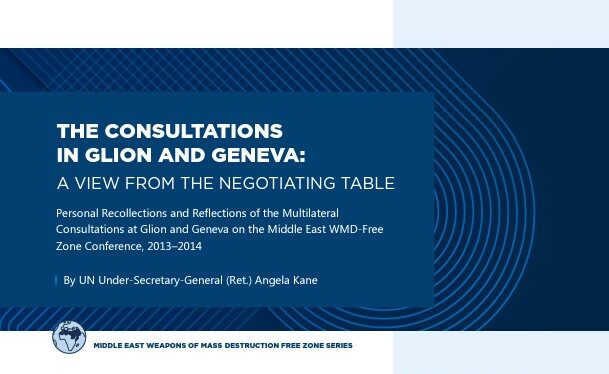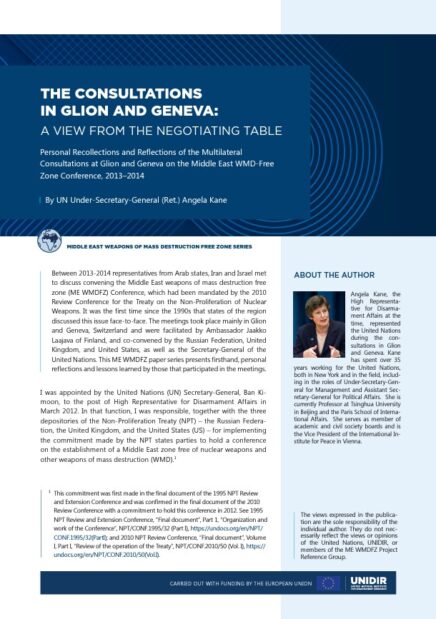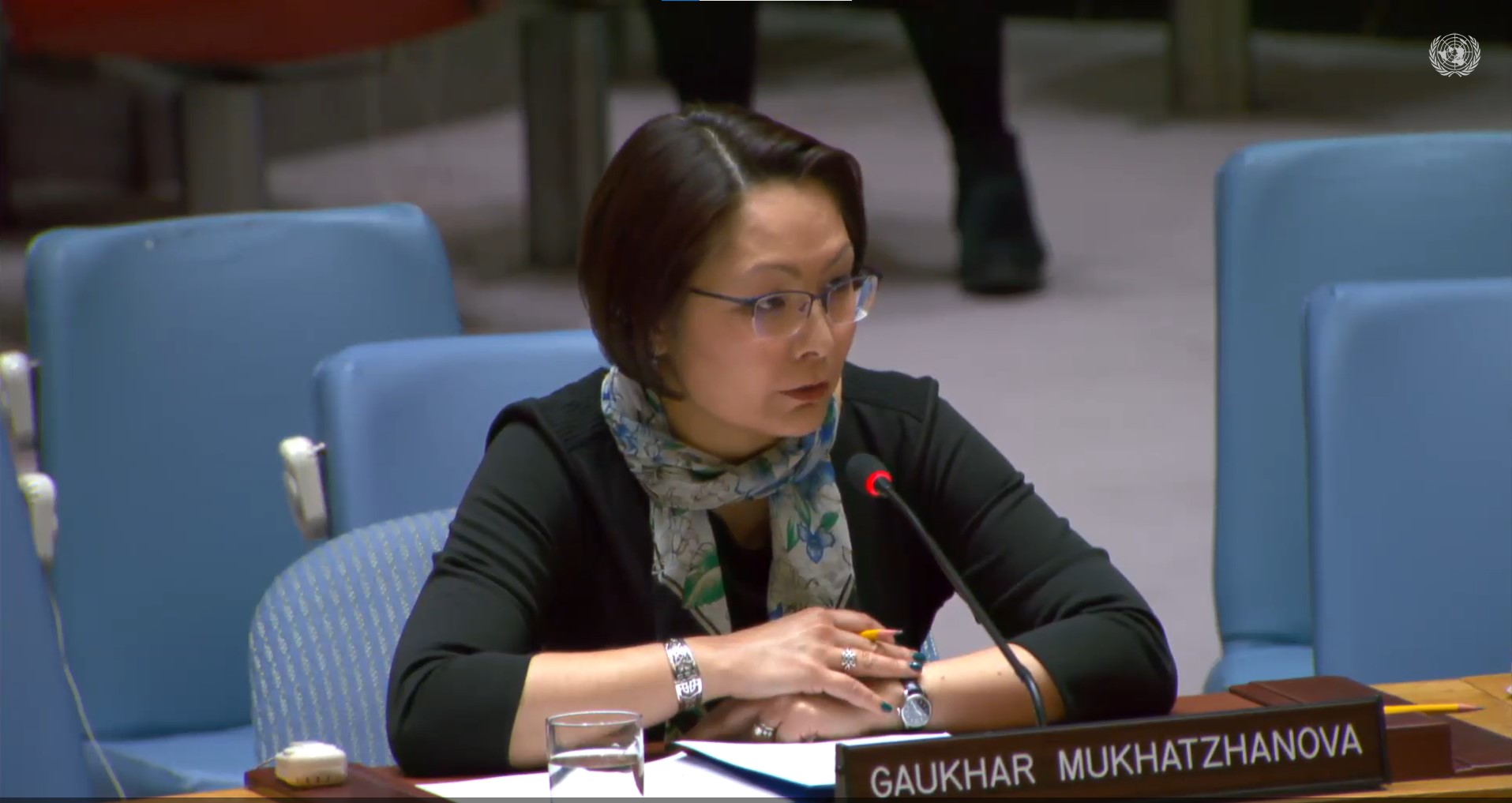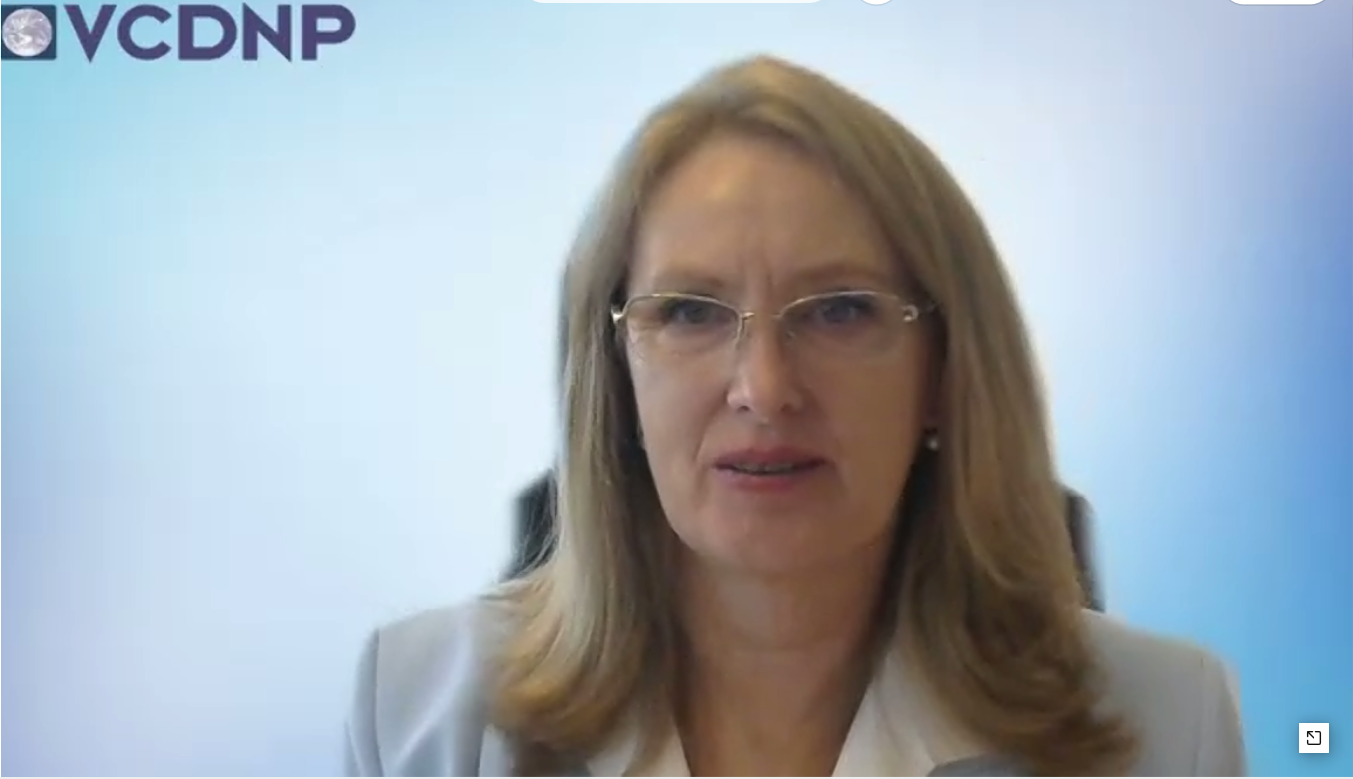

What were the driving factors behind efforts to convene a Conference on the Establishment of a Middle East Zone Free of Nuclear Weapons and Other Weapons of Mass Destruction (ME WMDFZ) between 2013 and 2014? Who were the main parties involved? What were the points of convergence and divergence during the consultations preceding the Conference, and why was it not successful?
VCDNP Senior Fellow and then-High Representative for Disarmament Affairs discusses these questions in a new paper published by the United Nations Institute for Disarmament Research (UNIDIR).
At the 2010 Review Conference of the Treaty on the Non-Proliferation of Nuclear Weapons (NPT), NPT States Parties committed to convene a Conference on the Establishment of a ME WMDFZ. Between 2013 and 2014, representatives from Arab states, Iran and Israel took part in consultations to this end in the Swiss cities of Glion and Geneva. Finnish Ambassador Jaakko Laajava facilitated the consultations. The co-convenors of the meeting were the three NPT depositaries—the Russian Federation, the United Kingdom, and the United States—as well as the UN Secretary-General who was represented by Ms. Kane. The League of Arab States was an active participant and coordinator.
Efforts to convene the Conference began late in 2011, she wrote, but there were difficulties faced from the outset. One issue was the 2012 deadline for convening the Conference (set by the 2010 NPT Review Conference), the delayed appointment of a facilitator by the UN. There was also a lack of clarity as to the roles and responsibilities of the facilitator and the co-convenors and the occasional lack of unity between the co-convenors and the facilitator. A degree of tension and misunderstanding arose during discussions. Despite these difficulties, however, Ms. Kane argued that the desire among the parties to move forward remained strong and efforts to convene the meeting continued. Given Syria’s accession to the Chemical Weapons Convention and productive talks with Iran on its nuclear programme, Ms. Kane observed that the atmosphere at the time was one of hope and aspiration.
Having met five times for consultations over the course of 2013 and 2014, Ms. Kane reflected that the group made considerable progress towards convening the Conference. However, the points of divergence proved to be too great and talks broke down before an agreement was reached. Ms. Kane noted eight factors which contributed to the breakdown in negotiations, which are detailed in the paper.


